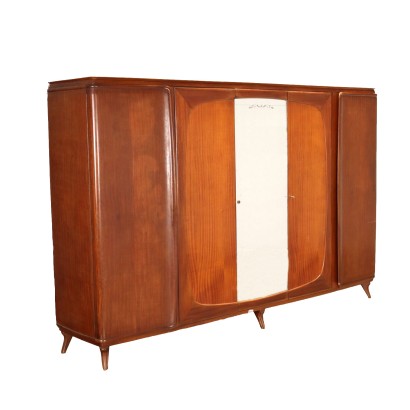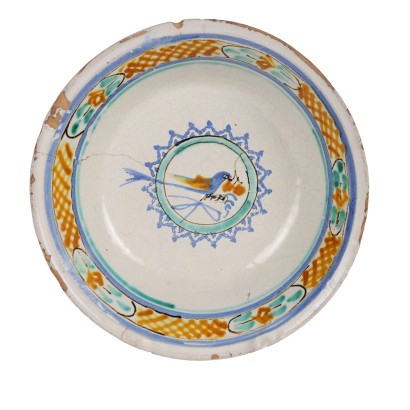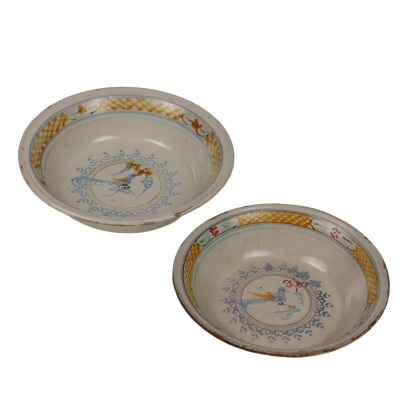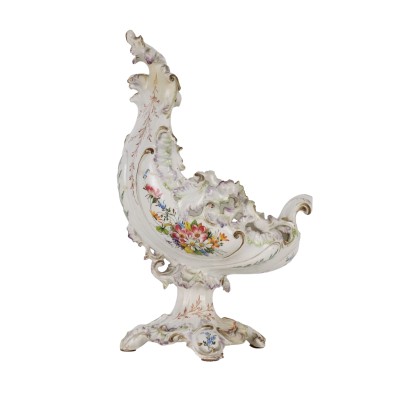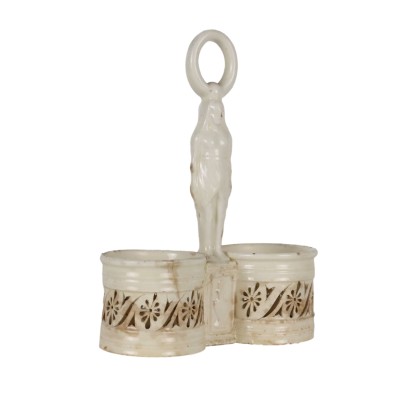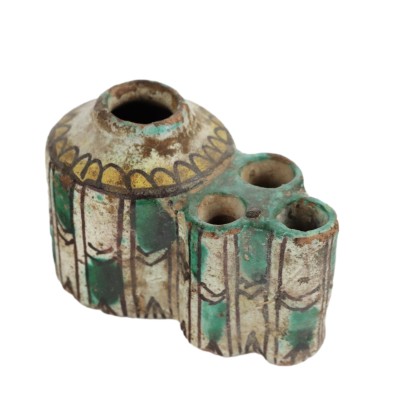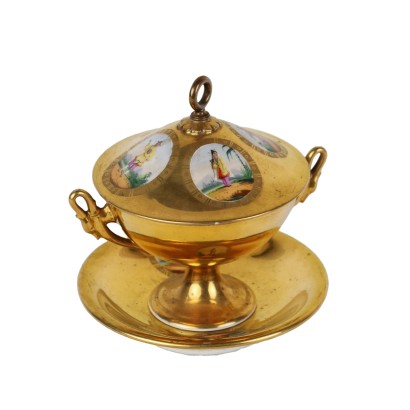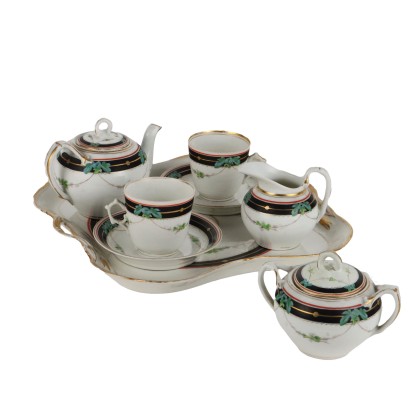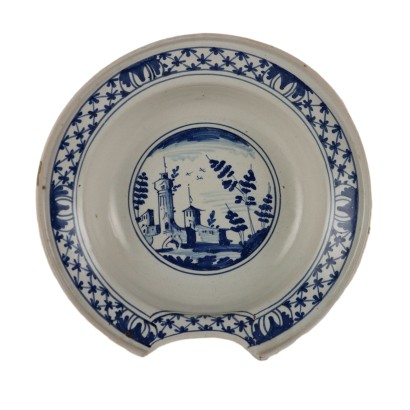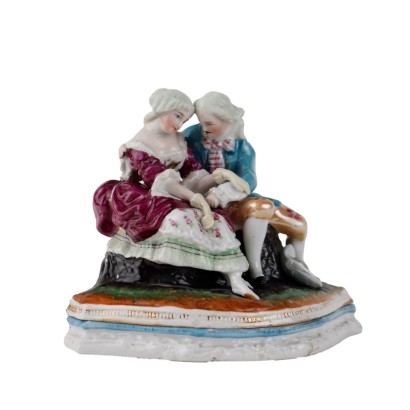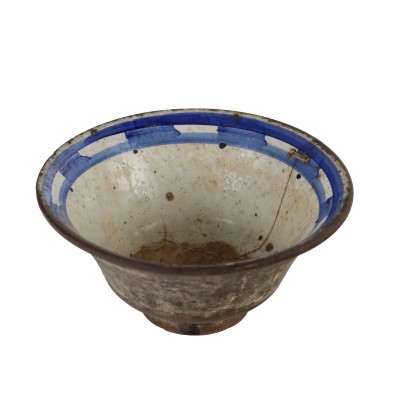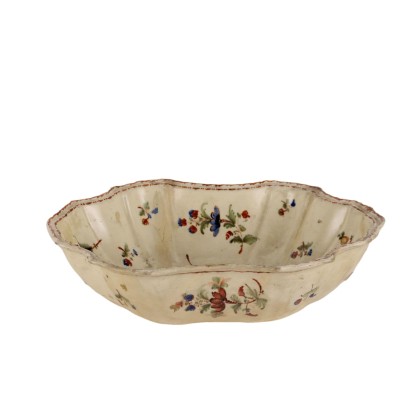Ancient Neoclassical Chest of Drawers Capriccios 1800 - England 19th century
Features
England 19th century
Style: Early Victorian (1830-1850)
Age: 19th Century / 1801 - 1900
Origin: England
Main essence: Silver Fir , Mahogany
Description
Chest of drawers with four drawers on the front, the first of which is decorated with square spiral frets concealing a cabinet with drawers. All drawers are equipped with sheet metal decoration on the handles to depict architectural whims. Bakelite vents replaced. Mahogany veneer and spruce interior. England 19th century
Product Condition:
Product which due to age and wear requires restoration and re-polishing. We try to present the real state of the furniture as completely as possible with photos. If some details are not clear from the photos, what is stated in the description applies.
Dimensions (cm):
Height: 115,5
Width: 108
Depth: 51
Additional Information
Style: Early Victorian (1830-1850)
The term Victorian refers to one of the predominant styles used during the Victorian era.Like the latter, it refers approximately to the duration of the reign of Queen Victoria (June 20, 1837 – January 22, 1901), from which it took its name.
Characterized by a great expansion of the home furnishings market and by the new mechanized production possibilities, however not by great aesthetic innovations, but by the resumption of stylistic elements from various previous eras.
Find out more about the Victorian style with our insights:
FineArt: Scrittoio, Arthur Blain
INSERT ADDITIONAL LINKS:
The Austrian taste of Baroque
The luxury of Italian Baroque
The art of English painters in the 19th century
Age: 19th Century / 1801 - 1900
19th Century / 1801 - 1900Main essence:
Silver Fir
Soft coniferous wood, used for rustic furniture or to build the chest, that is the structure, of furniture then veneered in more precious woods. It has been used since ancient times, its most valuable use is, in the Spruce variant, in the inlays of French antique furniture of the '700 . The spruce, more typical of northern Europe, in Italy grows mainly in the Eastern Alps at altitudes above 1300 m. The noblest use of this essence was in the construction of violins, guitars and cellos: Stradivari himself produced his famous violins with this wood.Mahogany
It is one of the most precious and sought-after woods in cabinet making. It was discovered in Central America around 1600 and began to be imported to England in the 1700s. Much appreciated for its hardness and indestructibility, it became widespread following the blocking of walnut exports from France in 1720 and the consequent elimination of English import duties on mahogany from the colonies in America and India. The most valuable version comes from Cuba, but it became very expensive. At the end of the 18th century it began to be used also in France in Louis XVI, Directory and Empire furniture, its diffusion declined starting from when Napoleon, in 1810, forbade its import. It was generally used in the manufacture of elegant furniture, due to its characteristics and beautiful grain.Other customers have searched:
Approfondimenti
Scopri di più su cassettiere e comò grazie ai nostri approfondimenti:La storia nascosta in due antichi cassettoni
Conoscere il Neoclassicismo attraverso un cassettone piacentino
Un comò piemontese influenzato dal fascino per l'Oriente
Un signorile comò rococò napoletano
Una caratteristica cassettiera con alzata emiliana di perfetto gusto barocchetto
E per gli appassionati dal gusto più raffinato, c'è FineArt:
Commode a tre cassetti G.B.M., inizio XIX secolo
Canterano dipinto
Canterano emiliano, primo quarto XVIII
Cassettone a ribalta romano, secondo quarto XVIII secolo
Comò attribuito a Luigi Viglione, Luigi XVI, fine XVIII, Torino
Coppia di comò e comodino di Maggiolini
Sull'antiquariato in generale dai un'occhiata anche a
Classic Monday: da un pezzo dei nostri magazzini alla storia dell'antiquariato
L'antiquariato dalla A alla Z: il Dizionario dell'Antiquariato
Il dizionario dell'antiquariato - Lastronatura
Il dizionario dell'antiquariato - Mascherone
Il dizionario dell'antiquariato - Natura morta
Il dizionario dell'antiquariato - Opificio
Il dizionario dell'antiquariato - Pastiglia
Il dizionario dell'antiquariato - Savonarola
Il dizionario dell'antiquariato - Rosone














